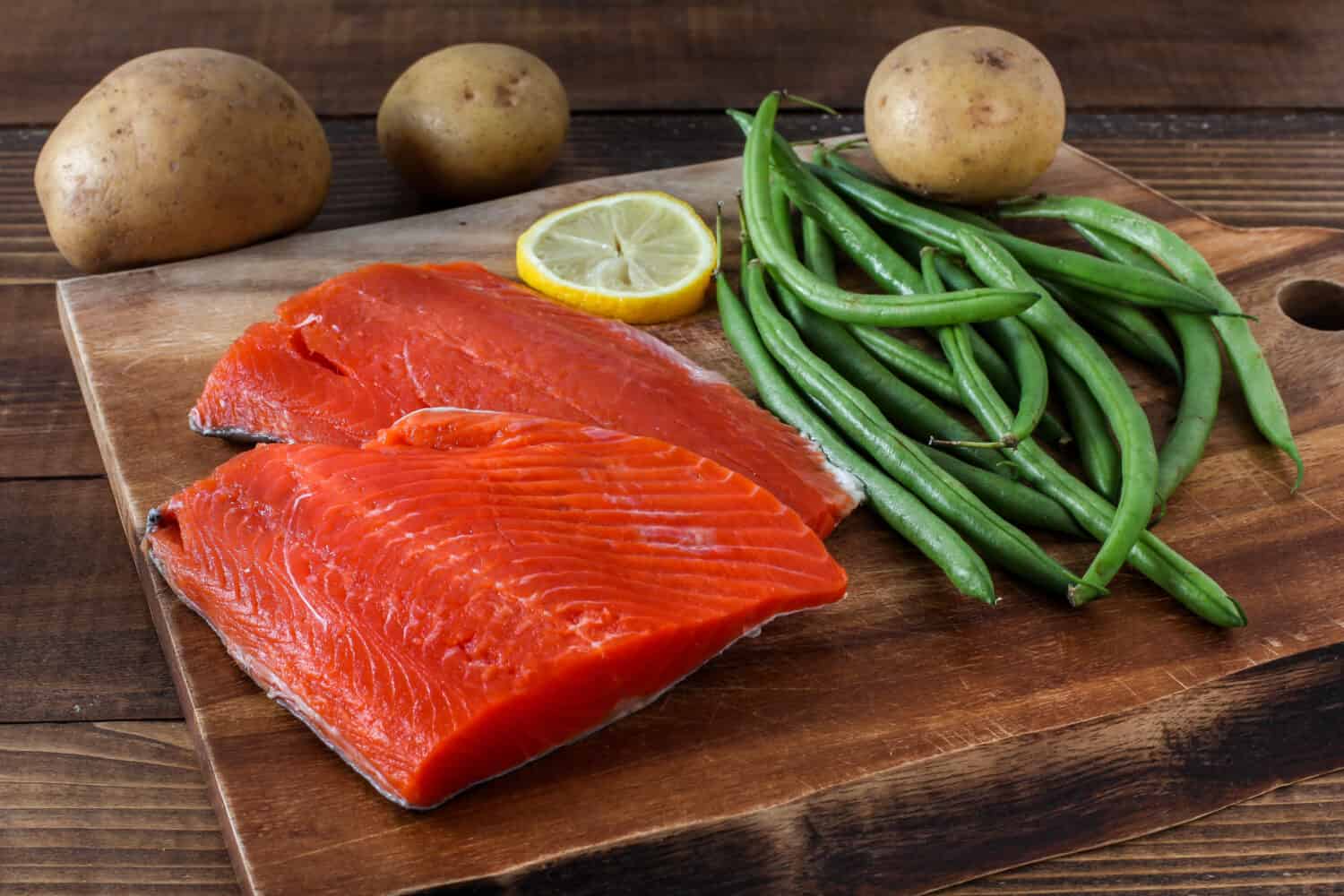Out of all the fish, salmon is one of the most popular ones to eat. This is because salmon is highly nutritious and beneficial for our health. It has plenty of protein, selenium, omega-3 fatty acids, and potassium. These acids can help aid brain health and reduce the risk of inflammation. With all of these benefits, it's no wonder that fish is a popular additive to one's diet. Yet, did you know that there is more than one type of salmon? This article will explore the difference between Sockeye and Atlantic salmon, two more popular varieties.
There are numerous differences between Sockeye salmon and Atlantic salmon. One lives in the Pacific Ocean, and the other in the Atlantic Ocean. There are also differences in texture, color, and more. Let's take a look at what each one is in more depth below.
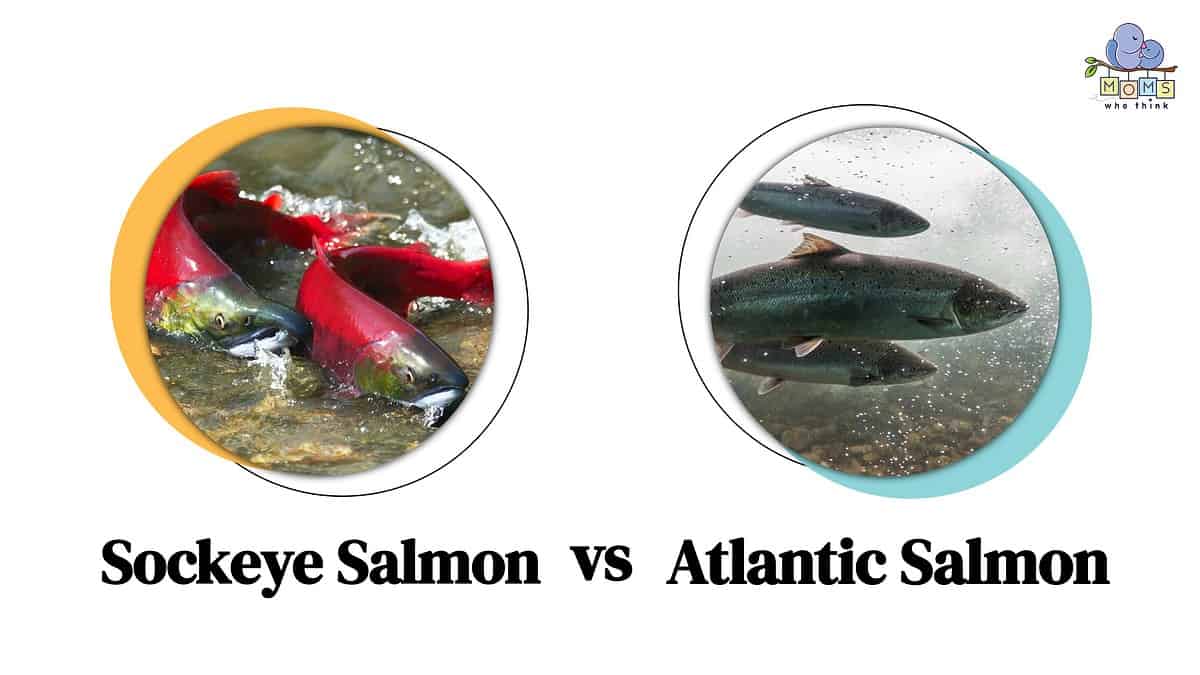
©
What is Sockeye Salmon?
The Sockeye salmon has a very interesting appearance. Its appearance also changes during its lifetime. First, they start with a silver body that has a hint of blue. While living in the ocean, their bodies retain this color. However, when Sockeye salmon return to their birthplaces to spawn, they will change color. This is where their appearance gets interesting. Their bodies turn red, and their face will turn green. They also have gill rakers.
The Sockeye salmon lives in the Pacific Ocean and is popular in Alaska. They have been fished for thousands of years. Sockeye salmon are small salmon, reaching around 2 feet. They are recognizable by their deep red color. Additionally, Sockeye salmon is very bold and strong in their flavor. They also have a firm texture. They are a protected population, meaning monitoring of fishing Sockeye salmon is high.
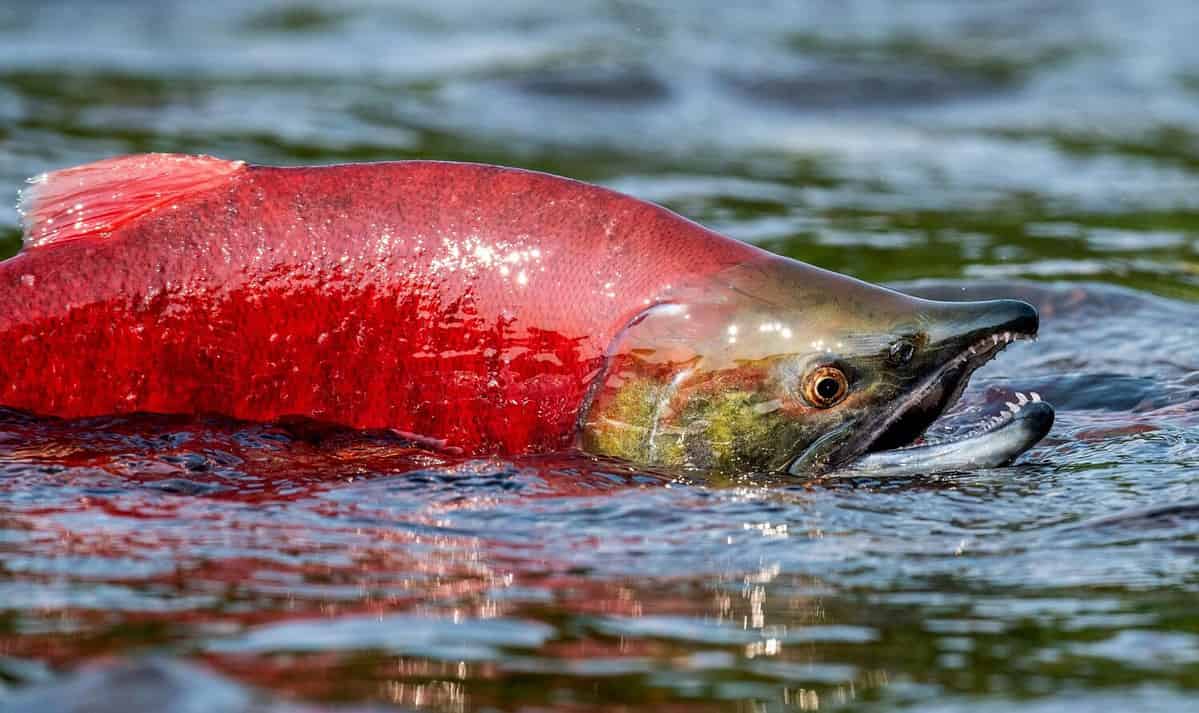
©Sergey Uryadnikov/Shutterstock.com
What is Atlantic Salmon?
Atlantic salmon are part of the Salmonidae family in the North Atlantic Ocean. This type of salmon can grow to be one of the largest types in the genus. The average Atlantic salmon is around 32 inches and 12 pounds. However, the largest Atlantic Salmon caught was 105 pounds and 60 inches!
Wild Atlantic salmon are an endangered species. For this reason, farm-raised Atlantic salmon is most prevalent in grocery stores. The diets of farmed Atlantic salmons differ from their wild counterparts. Their differing diet means the farmed salmon have a higher percentage of fat. When it comes to flavor, the Atlantic Salmon is mild compared to many other salmon. Therefore, it makes a great starter fish if you do not particularly enjoy the flavor of bold fish.
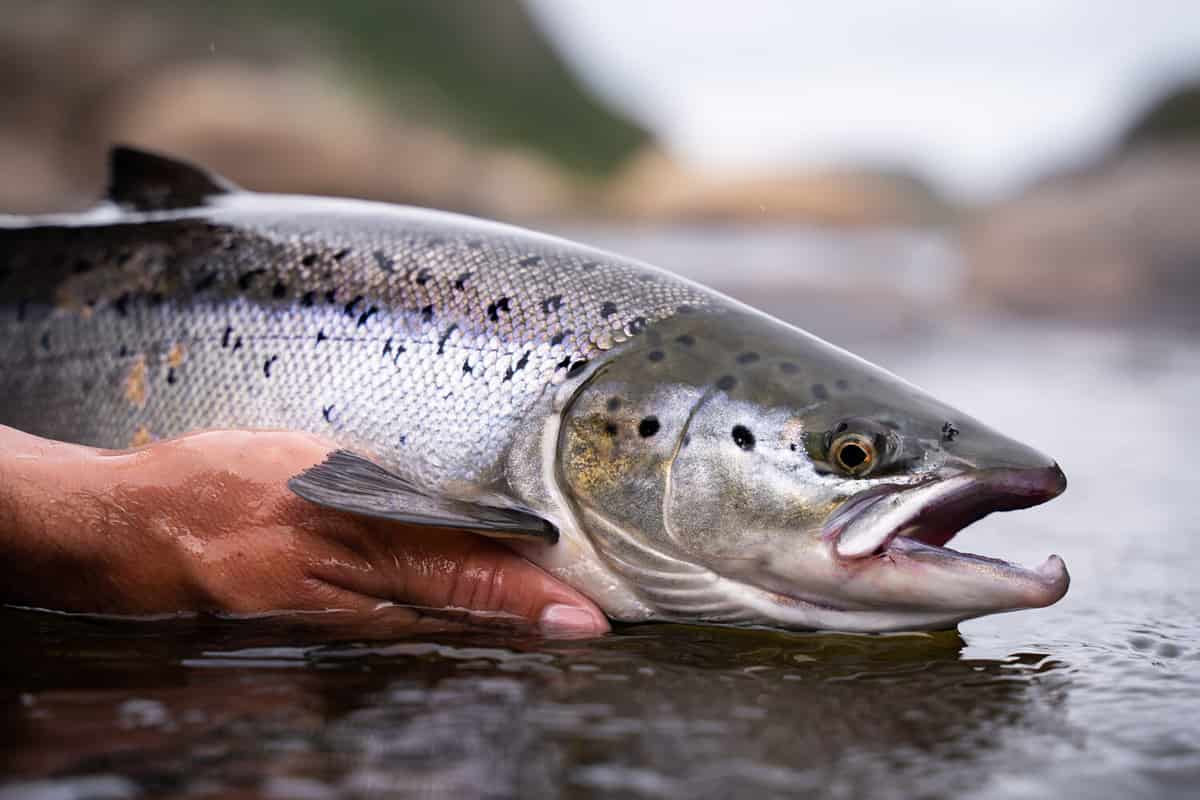
©Ilya Marchenko/Shutterstock.com
Sockeye Salmon vs. Atlantic Salmon: Full Health Comparison & Taste Differences
There are several differences between Sockeye salmon and Atlantic salmon.
The first difference is in their geographical locations. Sockeye salmon is found in the Pacific Ocean, typically around Alaska or Russia. They start their life in the freshwaters of rivers and lakes. Then, they will migrate into the colder, nutrient-rich waters of the North Pacific Ocean. The Atlantic Salmon, however, can be found in the North Atlantic Ocean. In their early life, they enjoy the cold freshwaters of rivers and streams and then migrate into the ocean.
Another difference is their physical appearance. The Atlantic salmon has a silvery body with a few black spots in different areas, like their head and back. Sockeye salmon, on the other hand, starts with a metallic blue and green appearance. They also have a silver belly. Their appearance changes during spawning. Their bodies turn red and their heads green.
These two salmons also vary in size. The Sockeye salmon is relatively smaller than the Atlantic salmon. It can grow up to 15 pounds; however, it can range between five to 15 pounds. The Atlantic salmon grows much larger, closer to averaging around 30 pounds.
What are the Taste Differences Between Sockeye Salmon and Atlantic Salmon?
Another main difference between Sockeye and Atlantic salmon is their flavor. Sockeye has a robust and more intensely rich flavor. Atlantic salmon is milder. The flesh color of Atlantic salmon can range from pale pink to orange. However, the flesh of Sockeye salmon is usually bright red.
Full Health Comparison
When it comes to the health comparison between these two types of salmon, they are similar. If you compare a 3.5-ounce of salmon, the calories will be the same, around 206. The protein will also be the same, around 22 grams.
Atlantic salmon has a lower amount of cholesterol, at 55 milligrams, compared to 59 milligrams. However, the nutrients and fat remain relatively the same across the board.
Both sockeye and Atlantic salmon are rich in Omega 3 Fatty Acids high in protein and selenium. Studies show both types may reduce the risk of heart disease and inflammation and promote brain health.
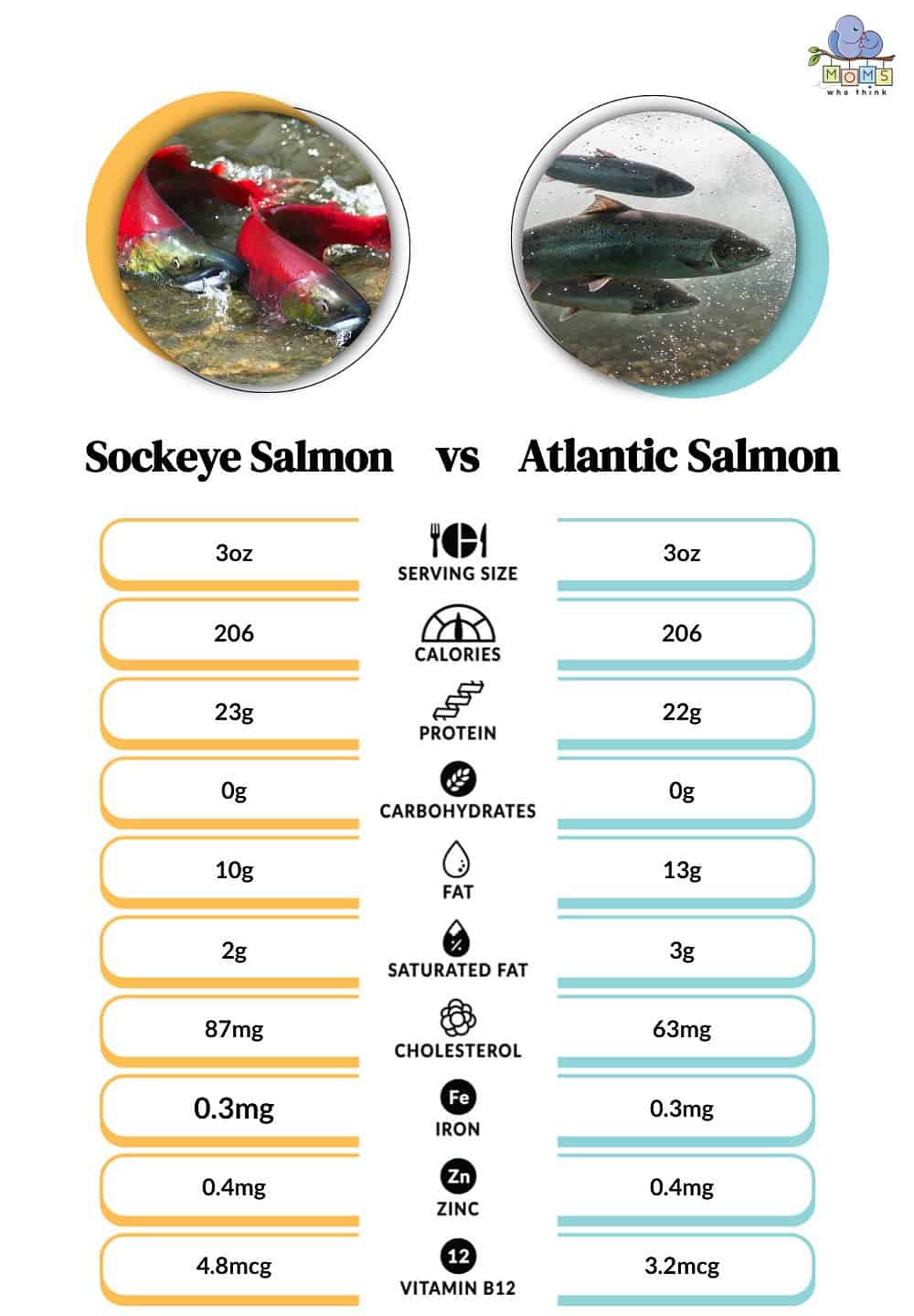
©
In Conclusion
Whether you prefer the mild flavor of Atlantic salmon or the bold and rich taste of Sockeye salmon, both types of fish are filled with benefits and are high in nutrients. While they are both salmon, many differences make each one unique!
The image featured at the top of this post is ©Miro Vrlik Photography/Shutterstock.com.
